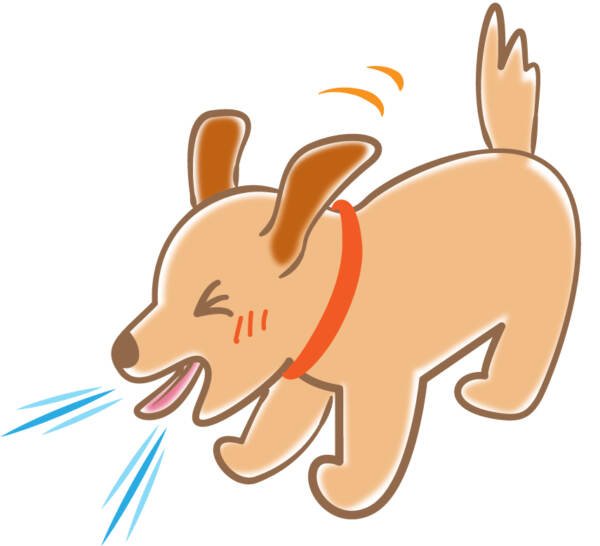IBPSA (International Boarding & Pet Services Association)* recently provided its member pet care businesses with the following important information about Canine Cough. Heading into the warmer weather we wanted to provide this helpful information on prevention, protocol, and treatment of upper respiratory infections.
“WHAT YOU NEED TO KNOW ABOUT CANINE COUGH”
While commonly called Kennel Cough, Canine Cough is the more accurate name as dogs can contract it anywhere, including:
- Veterinary clinics
- Parks
- Dog-friendly environments
- Your own neighborhood
Canine Cough, aka Kennel Cough, aka Canine Infectious Respiratory Disease (CIRD), is caused by both viruses and bacteria which can be transmitted through saliva, feces, blood, and insects. Humans can also be carriers on their clothes or shoes if they handled an infected dog. Infected dogs may not show any symptoms, just as is the case when a human is sick.
Depending on the pathogen that caused the disease, dogs are sometimes most contagious before they exhibit symptoms which helps facilitate outbreaks as it was not known they were sick at the time they were playing and interacting with other dogs. Not surprisingly, where there are high concentrations of dogs it’s not uncommon for outbreaks to occur.
Your dog’s veterinarian must take specific steps to diagnose your dog that may include a pathogen panel or blood work. A diagnosis cannot be given based solely on the observation of clinical signs.
How does a professional pet care provider prevent the spread of Canine Cough?
By being a professional pet care provider that follows a strict cleaning protocol that may include, but is not limited to:
- Using a commercial-strength UV system that kills 99.9% of germs floating in the air.
- Daily deep cleaning of all accommodations.
- Daily sanitizing and disinfecting of yards, play equipment, toys, fences, and bowls.
- Daily vaccination confirmations for all dogs with no exceptions.
What are questions to ask your vet?
If your vet says that your dog has Canine Cough (or Kennel Cough, etc.) ask the following:
- Do we have a diagnosis?
- Have we identified the organism?
- Were there any additional diagnostics or tests done (e.g., x-ray, blood work)?’
- How severe is the infection?
- What is the treatment plan?
- How long does our dog need to be kept away from other dogs?
- What follow-up needs to be taken to ensure our dog is no longer infected?
Symptoms
The trademark symptom of the aptly named Canine Cough is a harsh cough. At the same time, dogs may also be sneezing and/or have eye or nasal discharge (or both). Typically, dogs improve within seven to 10 days with basic nursing care, and the disease does not generally require extensive diagnostic testing or specific drug therapy.
If a dog has seasonal allergies, exhibited symptoms may be similar to the above.
References:
Dubovi, E. J. (2016), Canine Respiratory Disease Complex: More “Complex” Than We Thought [Webinar]. Retrieved from www.vetfolio.com.
Larson, L. J. & Schultz, R. (2016), What Every Pet Professional Needs to Know About Canine Vaccines and Vaccination Programs [Webinar]. Retrieved from www.vetfolio.com.
Stahl, M. (Ed.), (2018), Infectious Disease Handbook. Heroes for Healthy Pets.
*Editor’s Note: Best Friends Fur Ever is a proud member of IBPSA and adheres to IBPSA professional industry standards and code of conduct.

